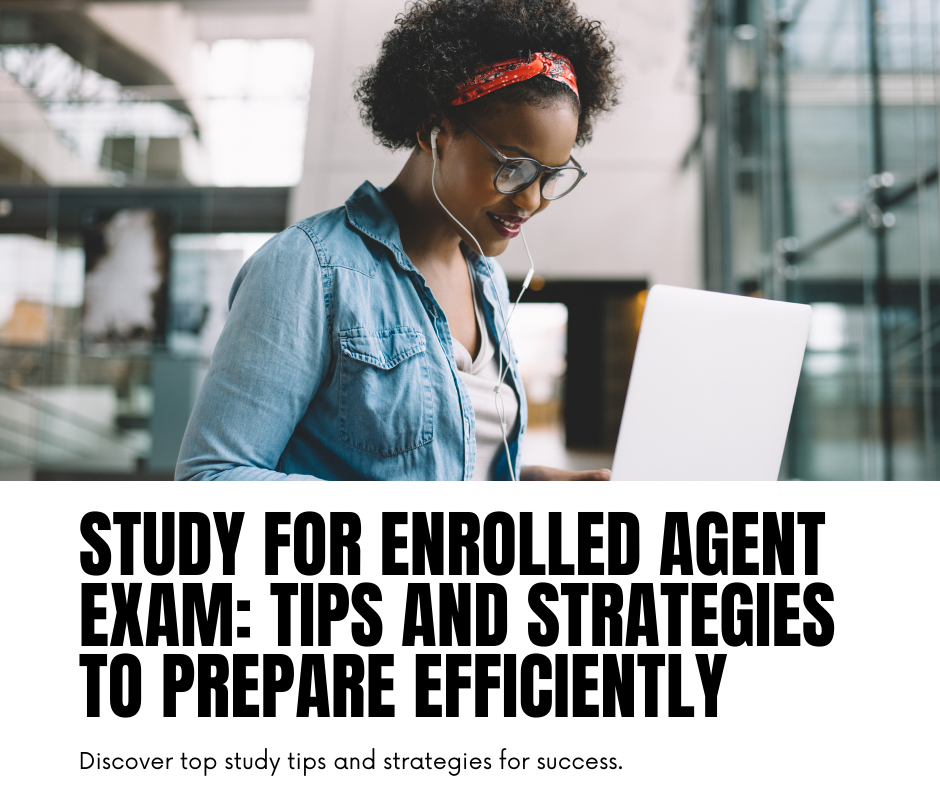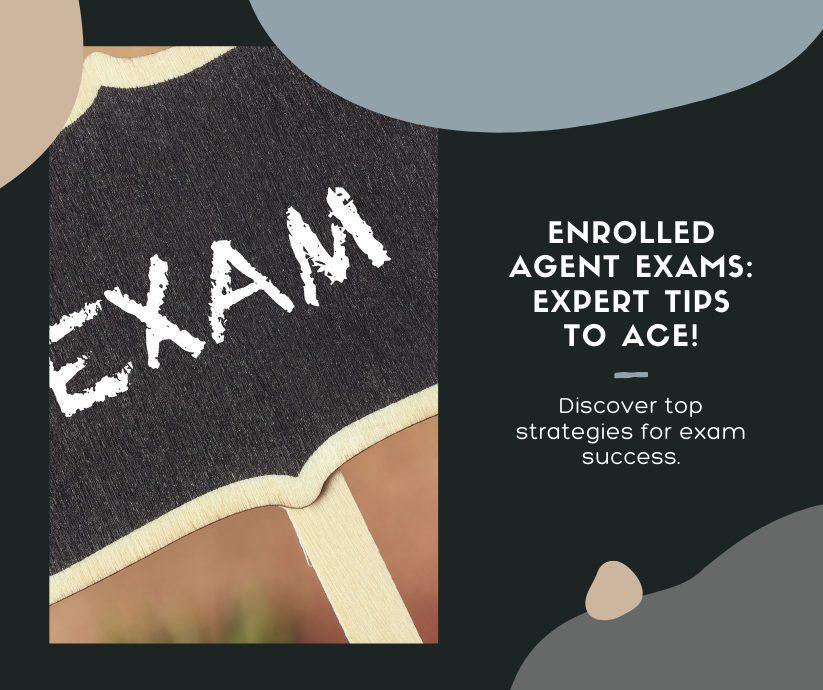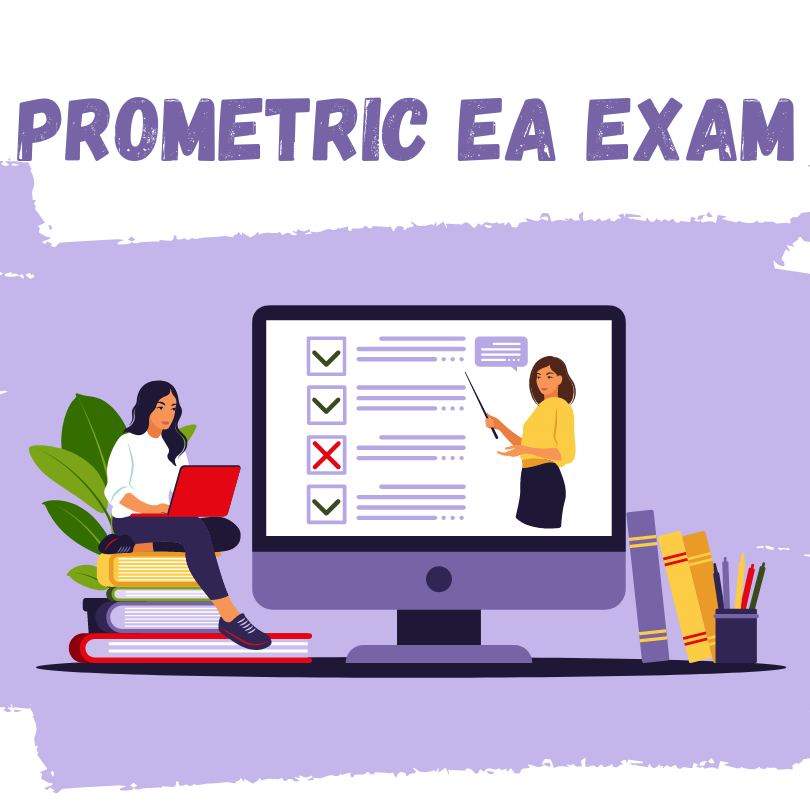Become an Enrolled Agent: Step-by-Step Guide
Passing the Enrolled Agent (EA) exam opens the door to...

Achieving the status of an Enrolled Agent is a significant career milestone for tax professionals, providing extensive authority to represent taxpayers before the IRS. The journey demands dedication, knowledge, and a strategic study approach.
Investing in a structured study plan is essential.
By utilizing the EA Exam Test Bank, candidates can leverage advanced tools to increase their chances of success.
Creating a study plan is crucial for success, as it enables an organized, systematic approach with clear goals. Consistency is key; a well-structured plan ensures that each study session contributes to the overall objective of passing the EA exam, thus maximizing efficiency.
It is recommended to commence with the exam part you feel strongest in, such as “Individuals” or “Businesses.” This allows you to build confidence while solidifying foundational knowledge. As you progress, track your performance using the Test Bank, dedicate additional time to weaker areas, and consistently review challenging topics to ensure comprehensive understanding.
Begin with the exam part you’re most comfortable with, a strategy that builds confidence. Tackling sections like “Individuals” or “Businesses” first can provide a solid foundation.
Focusing on your strengths in the initial phase allows for a momentum build-up, critical for maintaining study discipline. It’s advantageous to use this period for practicing Test Bank questions extensively.
“Prioritize where you excel first to minimize frustration and enhance overall preparedness.”
Subsequently, gradually move on to the remaining sections, ensuring that your base knowledge is robust. Regular practice and continuous feedback on weak areas are essential for all three parts. Balancing confidence and competence will streamline your path to becoming an Enrolled Agent.
Effectively leveraging the Test Bank is crucial for passing the EA Exam. Our comprehensive Test Bank provides over 10,000 practice questions designed to mirror the real exam.
The Test Bank enables a personalized learning environment, which adapts to your strengths and weaknesses, offering targeted practice. This unique feature allows you to focus on areas needing improvement, ultimately maximizing your study efficiency.
Additionally, the Test Bank’s AI tracks your progress and performance. By continuously practicing and reviewing explanations, you reinforce your understanding and increase retention, essential for mastering complex tax concepts.
Lastly, utilizing the Test Bank’s mock exams helps simulate real testing conditions. Aim for a consistent 80% passing rate on these practice exams to gauge readiness effectively. This will not only build your confidence but also ensure that you are thoroughly prepared for exam day.
Effective practice involves continuous engagement with practice questions, a strategy our platform emphasizes. Start with easier questions before progressively tackling more challenging ones, allowing you to build confidence and develop a deeper understanding of complex topics.
By dedicating time consistently to the Test Bank, you can leverage its adaptive learning technology. Focus on areas identified as weak, and review detailed explanations for each question. This approach ensures comprehensive preparation, keeping you on track to pass all three parts of the EA Exam.
Mastering multiple choice questions (MCQs) is crucial for passing the Enrolled Agent Exam. These questions test a wide array of tax laws, procedures, and regulations, allowing you to demonstrate your proficiency comprehensively.
The EA Exam Test Bank offers over 10,000 MCQs. Practicing these questions repeatedly ensures familiarity with the exam format.
Additionally, answer explanations provided in the Test Bank help clarify complex concepts. Each explanation ties back to a specific area of the study guide for more in-depth review.
Adaptive technology pinpoints weaknesses, offering targeted practice. This method optimizes your study time, focusing on areas needing the most improvement.
Continual practice with MCQs builds expertise and confidence. Regular engagement prevents knowledge gaps and strengthens understanding across all exam sections.
Ultimately, the key to success lies in consistent practice. Diligent repetition of MCQs ensures thorough preparation and enhances exam performance.
Mock exams are an indispensable component of efficient preparation, designed to mirror the actual testing environment and conditions.
These simulations emulate real exam situations.
Taking full exams helps build stamina, reinforces knowledge, and calms nerves (reducing anxiety and boosting confidence).
Mini exams focus on specific sections, providing concentrated practice and immediate feedback.
Experiencing mock exams gives candidates a realistic expectation of the Enrolled Agent Exam, making them more adept at time management and question prioritization.
Ultimately, the practice gained through mock exams is crucial for success. Regular engagement ensures readiness and considerable improvement.
Study guides are instrumental resources, acting as comprehensive supplements to practical exam preparation. These guides break down complex topics into manageable segments, ensuring candidates grasp essential concepts effectively. By leveraging study guides alongside the EA Exam Test Bank, candidates build a robust foundation, facilitating a deeper understanding and retention of tax regulations and procedures.
Effective reading is a cornerstone of efficient exam preparation. It demands focus, a structured approach, and an understanding of the key materials at hand.
Start by allocating specific time slots for reading. This creates consistency and ensures regular engagement.
Develop a routine that integrates reading breaks. Sustained focus is more productive and less exhausting.
Create summaries of critical points as you read. Active engagement enhances memory retention.
Use highlighters and notes to identify important sections. Visual markers make revisiting topics easier, particularly before exams.
Lastly, assess your progress weekly to adjust your reading strategy. A flexible approach ensures comprehensiveness over time.
It’s crucial to address weak areas effectively for comprehensive exam preparation.
Since 2016, our innovative approach to tax education has focused on identifying and reinforcing weaknesses within your knowledge base, significantly enhancing overall performance.
By pinpointing your specific weak points, we tailor a custom study guide that targets these areas, drastically improving your understanding and retention of critical tax concepts.
This methodology ensures that time spent studying is highly efficient, allowing you to confidently master all three parts of the exam, including the most challenging topics and complex tax scenarios.
Consistent and focused practice on these weak areas fosters deeper comprehension and exam readiness.
Maximizing resources involves a strategic approach to utilizing our comprehensive study materials.
By leveraging our EA Exam Test Bank, you gain access to over 10,000 practice questions, which help identify your weaknesses, enabling focused study sessions and efficient learning.
Use the AI-driven insights to tailor your preparation and continually track your performance improvements.
An integral feature of our EA Exam Test Bank is the AI Tutor assistance, designed to optimize your preparation and ensure a thorough grasp of exam content.
The AI Tutor uses sophisticated algorithms to evaluate your performance, identifying both strengths and areas needing improvement.
Through this analysis, it provides immediate, tailored feedback, offering detailed explanations and further study references right when you need them most, fostering an enriching, supportive learning environment.
For comprehensive assistance, students can ask the AI Tutor for in-depth clarification on challenging topics, ensuring no question is left unresolved. This personalized attention significantly boosts confidence and helps you move through the study material efficiently and effectively, consistently aiming for the best possible exam performance.
Designed to reinforce key concepts, Power Notes offer concise and comprehensive explanations for topics you find challenging.
Using Power Notes allows you to quickly grasp difficult concepts and improve your understanding efficiently.
These notes are developed to help you maximize your study time and ensure easy recall during the exam.
Effective preparation requires a structured plan.
Understand the Exam Content: Familiarize yourself with the three parts of the Enrolled Agent Exam: Individuals, Businesses, and Representation, Practices and Procedures. Knowing the specific topics within each section helps you focus your study efforts more efficiently.
Use Quality Study Materials.
Set a study schedule: Allocate specific times each day for study. This regularity helps build a study habit and ensures you cover all necessary material without last-minute cramming.
Practice, Practice, Practice: Utilize practice exams to test your knowledge and timing. These exams identify areas where you need further review and help build exam-day confidence.
Stay updated on tax laws: Understanding the most current tax regulations is vital. Regularly review IRS publications and updates, as this information is crucial for both the exam and real-world application.
Before embarking on the journey to become an Enrolled Agent (EA), it is imperative to understand the exam’s structure and content. The EA exam, known as the Special Enrollment Examination (SEE), consists of three parts covering various aspects of tax law: Individuals, Businesses, and Representation, Practices, and Procedures.
At the beginning, acquiring the most recent EA study materials is crucial. Incorporate reputable resources such as the IRS publications, recommended textbooks, and online review courses.
A methodical study plan should then be developed, spanning several months if possible. Plan study sessions and allocate ample time for each of the three sections to ensure thorough coverage.
Practice exams are invaluable in gauging your preparedness. Engage in multiple practice tests to identify weak areas and adjust your study strategy accordingly.
Joining a study group or an online forum can provide additional support and resources. Engaging with peers can offer new perspectives and clarify difficult concepts.
Finally, ensure you maintain a balanced routine, incorporating regular breaks and managing stress effectively. Staying healthy and well-rested will optimize your study efforts, leading to success on exam day.
Preparing for the Enrolled Agent (EA) exam through self-study is a feasible approach for many.
This method allows candidates to tailor their study schedules.
Utilizing resources such as textbooks, online courses, and practice exams is essential for success.
Prospective EAs should ensure they allocate ample time for each section of the exam to master the complexities of tax law, ethics, and representation. Committing to a structured study plan and seeking clarification on challenging topics can enhance the self-study experience. With dedication and the right resources, passing the EA exam independently is achievable.
Preparation time varies per individual.
Some candidates report dedicating around 100-120 hours per exam section. Your study schedule might differ significantly based on your familiarity with the subject matter, learning style, and professional background.
Budget more time for difficult areas.
Consistency is key to success; spreading your study hours over several months typically ensures better retention and understanding. Consider using a structured review course, practice exams, and staying disciplined in your study routine.
In summary, while there is no one-size-fits-all answer, thoughtful planning and disciplined execution can greatly enhance your chances of passing the Enrolled Agent Exam.

Passing the Enrolled Agent (EA) exam opens the door to...

The journey to becoming an Enrolled Agent is both challenging...

Imagine gazing at a promising future as a tax professional.However,...

Achieving the status of an Enrolled Agent is a significant...

Are you envisioning a successful career as an Enrolled Agent?It's...